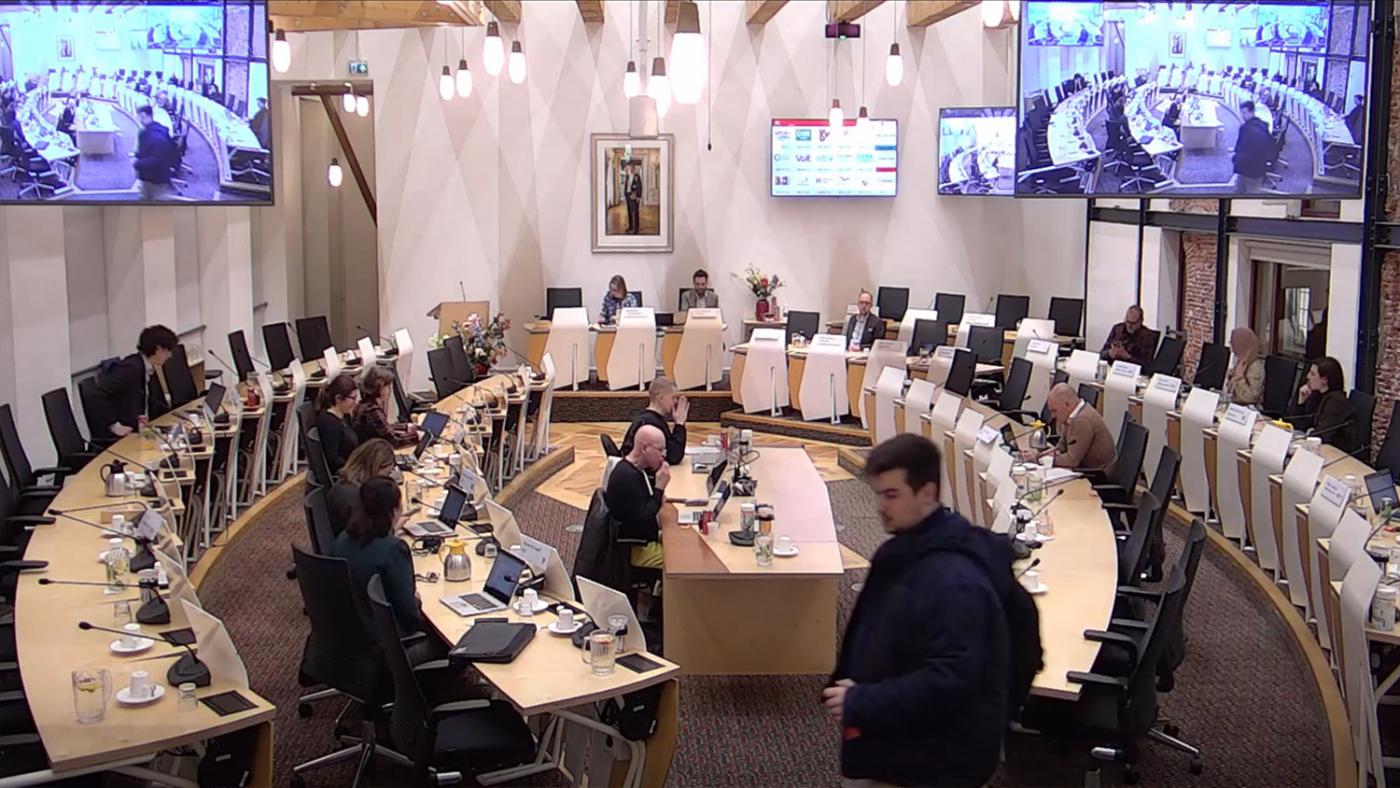Debate on Amnesty Manifesto and approach to inappropriate behavior
Part of municipal council wants an external person to become UU counselor

The municipal Public Health, Education, Labor & Economics committee recently met to discuss inappropriate and abusive behaviour at Utrecht’s education institutions. Several parties had asked for a debate with the alderman Eelco Eerenberg after he sent a letter to the council about conversations he'd had with different education institutions about inappropriate behaviours (of a sexual nature or not). One of these institutions was Utrecht University.
Prior to that, a number of parties had urged the alderman to ask the university about its decision not to sign the manifesto Let’s talk about Yes, by Amnesty International, in which Dutch universities pledge to take steps to combat sexual abuse and rape. He was also tasked with getting the university to explain why it has no external counsellors and whether the current internal ones are diverse and trained in cultural sensitivity. The answers he returned with prompted the parties to ask a new set of questions.
Esma Kendir, from the party Student & Starter, was one of the people demanding such a debate. “Utrecht University has not signed the Let’s talk about Yes manifesto and we think that's not in keeping with the number of students who are raped. According to Amnesty's report, one in ten women and one percent of men will be raped while in college. We are therefore indignant that the university has not signed the manifesto. The National Student Union has come up with an eight-point-plan to prevent inappropriate and abusive behaviours and establish a good complaints procedure. UU does not comply with all of these eight points and we want to ask the alderman to prompt the university to do them all."
Counsellors
Another party, PvdA, also asked critical questions. “It is remarkable,” said party member Romi Leever, “that UU only employs internal counsellors. I know from my own experience and from speaking with students that it is incredibly difficult to lodge a complaint if you know that, in doing so, you will have to deal with UU personnel or other students. It is impossible to complain anonymously and it also precludes a guaranteed objective judgement. This complaints procedure is a barrier to making a notification. Don’t you think the university should have an external counsellor?” Parties Denk and CDA agree.
Eelco Erenberg replied that, although the university could try harder to find an external counsellor, the current complaints procedure is not inherently unsafe. “We can always do better.” Though he acknowledges that an external counsellor could help those who still find it hard to report inappropriate behaviours, he considers the current distance between the notifier and the counsellor or interpersonal integrity committee to be big enough due to the size of the institution. Moreover, people who are not affiliated with UU are also part of the committee. He understands the university’s argument that a counsellor should know the academic world very well.
PvdA remains skeptical and wants to know whether the alderman will do something about the university’s policies. “I will keep discussing this with them. My task is to assess their intentions and those seem good to me.” On the spot, he came up with an idea of how the municipality could do more. “Perhaps we could spread leaflets or do something online during the introduction week at the start of the academic year.” These leaflets would educate students about where to turn if they are ever the victims of abuse, assault or inappropriate behaviours.
About Amnesty's Manifesto, the alderman says that he understands UU’s reasons for not signing. He repeats that UU does not agree with some formulations in the text and that abusive behaviours of a sexual nature such as rape or sexual assault mostly occur in students’ homes, not at the university.
Parties unsatisfied with UU's approach
Esma Kendir and Romi Leever are not satisfied with UU’s arguments after the debate. About the Amnesty manifesto, Kendir says: “The municipality cannot force the university to do anything but they can discuss the subject. It is good that the university is trying to increase safety but I still think it’s too easy for UU to say that they won’t sign because rape and sexual assault take place outside of the university's buildings. There can still be a school context if the perpetrator and the victim met at the university. This applies to two students but also to a student and a teacher.”
Romi Leever wants the university to take more action to create a socially safe environment for students and personnel. In her view, the alderman should communicate this responsibility to the university. A counsellor committee should really only consist of people external to the university. “After Amnesty's manifesto, I spoke to several students from different study programs. Even though external members are part of the interpersonal integrity committee, one student told me that they had not lodged a complaint because they were scared to encounter a fellow student or teacher at a vulnerable moment. I think the university should take these signals seriously. I really can’t agree with the alderman that the size of the university means there is enough distance between the people in the committee and the people that lodge a complaint. The municipality cannot force the university to do anything but if the board does something wrong, I think it is the municipal council’s task to say something about it. That is exactly what the alderman is refusing to do.”
The municipal council will discuss this subject again next year. They will look at the changes that have taken place over the past year and assess whether education institutions are still paying attention to the issue. Eerenberg’s predecessor was the one who had promised to discuss this topic in the municipal council every year for five years.